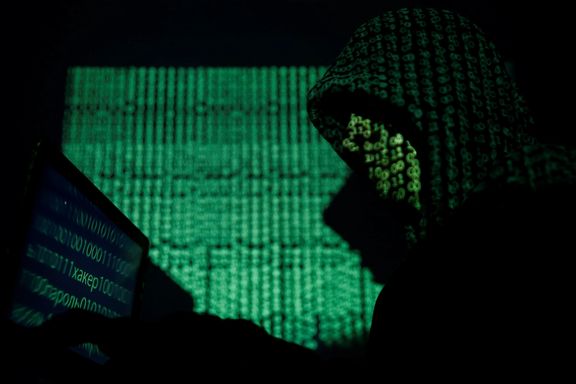Iranian Psy-Op Targets Israeli Journalists, Protesters

A network of Iranian operatives has targeted Israeli journalists and protesters with death threats amid its ongoing psychological warfare operation.

A network of Iranian operatives has targeted Israeli journalists and protesters with death threats amid its ongoing psychological warfare operation.
Death threats have been sent to the personal phones of Israeli reporters from Haaretz and Channel 13, accusing them of ‘collaborating with the enemy’.
Israel’s most left-wing newspaper, Haaretz, claims one of its reporters received a death threat on a call last week from a number registered abroad from a person speaking poor English.
In a bid to sow internal chaos amid the war in Gaza which has seen nationwide calls for the resignation of Prime Minister Netanyahu and a ceasefire to secure the release of hostages held by Iran-backed Hamas, digital surveillance firm Active Info, which has been monitoring the group for the past year, claims the sophisticated network also includes an account impersonating the controversial Minister of National Security, Itamar Ben-Gvir.
The influence network includes a Twitter account called Heroes of Israel, allegedly aligned with the campaign for a ceasefire and freeing of the hostages in Gaza. Hamas invaded Israel on October 7 killing 1,200 mostly civilians in a single day, taking 250 more hostage. Over 120 still remain inside the strip, several of whom are known to have been killed in captivity. As the war in Gaza rages on, the families of the hostages are desperate for a ceasefire to secure their release while the government has vowed there is no ceasefire until the elimination of the terror group.
The newspaper was contacted by the owner of the account who offered exclusive videos of the anti-government protests. When the reporter asked the source to identify themselves, they claimed to be a woman called Caroline Smart from the Netherlands who was unable to be in Israel herself due to the war.
Offering the reporter money to publish the pictures being offered "in order to help the campaign to free the hostages”, she offered to help install digital wallet software on his mobile device to make the payment in digital currency, a tool seen in previous cyber espionage campaigns by Iran.
When reporter Bar Peleg checked the Dutch number on WhatsApp he discovered the profile picture was stolen from the internet. When confronted, ’Caroline’ accused him of being “an Iranian spy”. The conversation was then manipulated, screenshot and sent to a pro-Israel page called Stand With Israel to insinuate the reporter was working with malign foreign influences or was aligned with the far right.
Just last week, Facebook's parent company reported that Iran was behind an influence operation exposed by Haaretz last year in coordination with researchers at Fake Reporter. It exposed a network with a plethora of fake accounts from gay representation to religious and political allegiances as the group delved into the multifaceted fabric of Israeli society.
Active Info claims the network has been operating on X for several months. Executed seamlessly, the fake Ben-Gvir account often echoes the real minister.
Last week other journalists from Channel 13 television news received threatening phone calls from foreigner numbers. "I know you up close, soon I will kill you and your family," said one with a Persian accent in a nighttime call to a reporter. Another reporter got one in the same Persian accent from a US phone number, saying "Leave Israel quickly, get it? You get it? If you don't, we'll kill you and your family.”
Defense sector retirees, public figures and even families of Israelis held by Hamas in Gaza and Knesset lawmakers have also recently received threatening letters and packages.
Iran began using the concept of foreign influence networks around two years ago to make connections with Israelis in an attempt to dupe them into acting as unwitting spies. They infiltrated the WhatsApp groups of political activists and convinced some to photograph the homes of top security officials, to print protest signs created by the Iranians on the hostages and even join fictitious demonstrations near the homes of hostage families.
In many cases, honey traps have also been used over the last two years. Iran International knows of several cases in which Israeli men were contacted on social media by figures posing as beautiful women asking them to meet in the likes of Turkey and Dubai. Though Israelis are trained in the army to recognize such fishing attempts, the intervention of intelligence agencies has been required in some cases.
"We have been aware of the practice of foreign influence networks asking Israelis for photos or videos since 2020," Active Info told Haaretz. "The goal is to give the foreign accounts local credibility, as if they were really involved in the protest movement. It's really a school of influence, creating fake conflicts between the right and the left, who argue with each other and even accuse each other of not being real."
The practice is not confined to Iran’s archenemy Israel. Dissident journalists abroad have also been the target of Iran’s spy-ops with death threats levied against Iran International reporters.
Just days ago, UN experts warned of transnational violence, threats, and intimidation by Iranian authorities and their proxies targeting Iran International and its journalists.
“We are deeply alarmed that death threats and intimidation against Iran International staff escalated into the violent stabbing of journalist Pouria Zeraati outside his home in London on 29 March 2024,” the experts said of the attack which sent shockwaves through the Iranian community.
Last year, the threats against Iran International staff became so severe that British security services MI5 said they could no longer protect the team, leading to a temporary relocation to Washington while the London offices were secured. MI5 and the police revealed they had foiled over 15 pilots on UK soil since the start of 2022 targeting “enemies of the regime”.